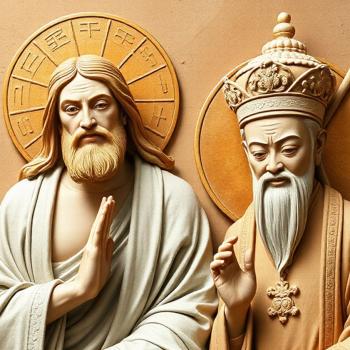As an anthropologist, why do you think these changes occurred?
I think there are many different social factors around increasing individualism, even urbanization and other factors that don't seem directly related to sex. Urbanization made it possible for people to move far away from their families and have relationships or sexual experiences that their kin would never even know about. So people were gaining more freedom to cultivate sexual experiences that were more individualized, and I think this influenced the scientific community to categorize sexuality in ways that were more individual and less religious and less communal.
Where did the scientific community locate this thing called sexual identity? Where does our sexual identity reside?
Often it has to do with sexual feelings. We are encouraged to think about what our sexual feelings are and choose the category accordingly. So a person could be gay or straight without having any sexual experience; it is simply based on their thoughts and feelings. Some people base it more on sexual behavior and experience. But there is disagreement in the scientific community, such that if you ask sex researchers today, "What percent of the population is gay?" you would get a response of frustration like, "Well it depends on what you mean by ‘gay.' How exactly do we define that term?" Different scientific studies will define sexual identity based on thoughts, feelings, behaviors, and self-identification and get very different answers depending on how the term is defined.
It sounds as though definitions would naturally be unstable if we're using such a precarious point of reference as feelings.
Absolutely, we trust feelings. We definitely give them a lot of authority, saying "What you feel is who you truly are." But at the same time feelings are fickle. We see in Scripture that feelings are described as fickle and unstable. Not many people experience fluidity in their sexual feelings but some do, and that's a growing area of research. We're finding that these feelings can really change with context, and can change with age as well.
The church has largely accepted this sexual identity framework. What have been the consequences and implications?
The church has bought into these identity categories for the last hundred years. The turmoil we're experiencing in the church today is a legacy of that acceptance. On an individual level people feel judged not in their behavior where there are choices, but instead in their very essence, in who they are as persons. And there is the idea that some people are better than other people by virtue of sexual feelings that they didn't even choose. On a corporate level we have organizations like churches and colleges and non-profits that use stances on homosexuality as part of their defining characteristic and that is resulting in divisions and heightened conflict.
Leaders in some of those institutions would say, "We're standing up for truth in an age of moral relativism." And those leaders might argue that you're "going soft on sin."
One of the frustrations that led to me writing this book was feeling bullied by the question "Is homosexuality a sin?" I picture a tug of war where that question is being shouted from a megaphone and people are forced to get on one team or the other and start fighting. That is so limiting. I think opening up the cultural dimensions of sexuality is the required step: not just asking, "Is homosexuality a sin?" but questioning "What is homosexuality? What is heterosexuality? What are these labels and where did they come from?" Starting to get underneath those questions can open up new opportunities, new discourse, new ways of thinking, new ways of living.
Another parallel intrigued me. The question of software and music piracy appears, on the one hand, to be a fundamental moral issue because of the commandment, "Thou shalt not steal." Yet some people treat the lines as fluid, as though it's acceptable to pirate from a major record label but not a small one. Yet we rarely treat pro-piracy or anti-piracy as identity labels. Is that analogous to your vision of what could be the Christian discussion about sexuality? Where there are still moral categories, but they're not made into identity categories?
That's a beautiful analogy and I think that kind of openness is already happening in many places around sexuality. Homosexuality and heterosexuality are not simple labels. You can imagine someone who is labeled heterosexual but has a lot of same-sex feelings or even practices. You can imagine a person labeled homosexual who might have some fluidity or some choice in their sexuality. People's back-stories on how they got to their current place are very different; the choices they face are very different. I think ratcheting down the stakes in a sense would allow us to see the complexity of people's stories and allow for a more complex, more real discussion. It doesn't make it less morally significant, but it makes it more true to what our experience really is.




